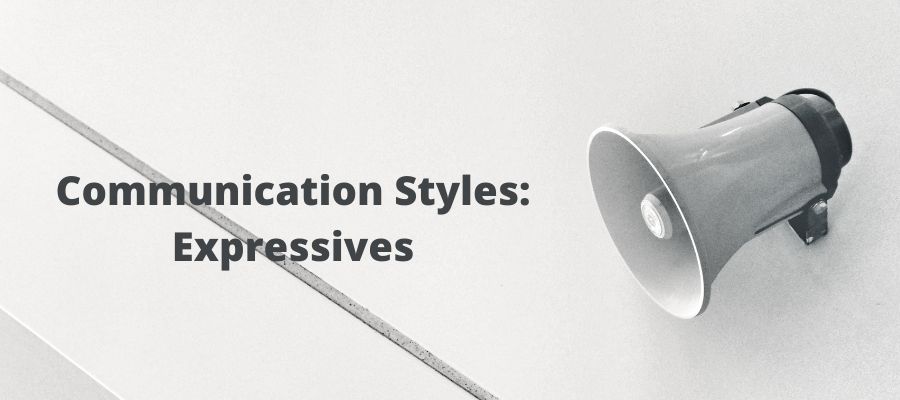Competent about Communication Styles? (All about those Expressives!)
In the previous posts, we discussed the characteristics, strengths, and weaknesses of 4 communication styles from the Boltons’ People Styles at Work and Beyond, 2nd Edition: Drivers, Expressives, Analyticals, and Amiables. We also discussed how Drivers can adapt to various communication styles. If you haven’t yet identified your communication style profile and would like to improve your people skills, go back and read the first post, “Competent about Communication Styles?” to determine your communication style and the style of those you work with.
Today we’re focusing on the Expressive communication style and how it can adapt to Drivers, Analyticals, and Amiables. Check out some helpful tips to improve your communication and people skills! As I’ve said before, it’s a win for us and a win for our organizations. Read on to see how Expressives can adapt to various communication styles. Stay tuned and read future posts to see how Analyticals and Amiables can adapt to other communication styles.
How EXPRESSIVES can adapt to AMIABLES
1. Slow your pace: talk slower, don’t rush Amiables’ decision making process
2. Listen More, Listen Better: talk less, don’t finish other people’s sentences
3. Don’t come on too strong: decrease intensity of eye contact, decrease your gestures, be more negotiable
4. Be supportive: express appreciation for contributions, lend a helping hand
How EXPRESSIVES can adapt to DRIVERS
1.Be more task oriented: be on time, be a bit more formal, get right to business, stick to business
2. De-emphasize Feelings: talk about what you think rather than what you feel, don’t upset yourself over the Driver’s impersonal or unfeeling manner
3. Plan your work and work your plan: convert dreams into goals and objectives, be realistic, plan you work, deliver the goods
4. Be Well Organized in your Communication: be prepared, when making recommendations offer 2 options, be pragmatic
5. Avoid power struggles
How EXPRESSIVES can adapt to ANALYTICALS
1. Slow your pace: talk slower, don’t create unnecessarily tight deadlines
2. Listen More, Listen Better: talk less, invite Analyticals to speak, reflect back to the speaker the essence of what you hear, don’t interrupt
3. Don’t come on too strong: decrease vocal intensity, be more negotiable, phrase your ideas more provisionally (ex. Here’s an idea off the top of my head.)
4. Be more Task-oriented: get right to business, be a bit more formal
5. De-emphasize Feelings: talk about what you think rather than what you feel, avoid touch, limit facial expressions
6. Be systematic: set high standards, plan your work, work your plan, adhere to procedures
7. Be Well Organized, Detailed, and Factual: be prepared, go into detail, stick to business, be prepared to listen to more detail than you want
References: Bolton, B. & Grover Bolton, D. (2009). People Styles at Work and Beyond, Second Edition. New York, NY: Ridge Associates, Inc.
You’re a communication expert. Why is it often so challenging to communicate productively with colleagues and parents? Because you’re human, and effective communication, like any other acquired skill, must be explicitly learned. Check out this course:









